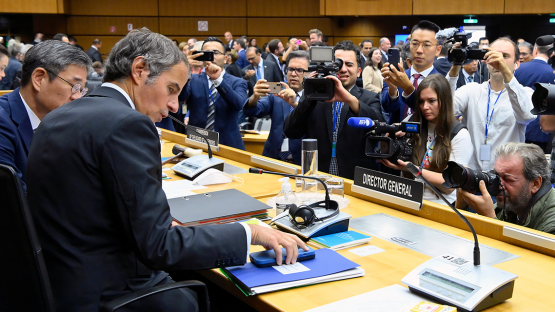In his opening address to the IAEA’s Board of Governors today, IAEA Director General Rafael Mariano Grossi reiterated his call for the establishment of a nuclear safety and security protection zone at Zaporizhzhya Nuclear Power Plant in Ukraine.
Mr Grossi described the precarious situation at the plant caused by weeks of shelling in the area that has damaged vital power infrastructure and prompted operators to put the last reactor into shutdown.
He told the 35-member Board: “This situation is untenable, and we are playing with fire. We cannot continue this situation where we are one step away from a nuclear accident. The safety of Zaporizhzhya Nuclear Power Plant is hanging by a thread.” Initial consultations with Ukraine and Russia to establish a protection zone have begun, he added.
At the end of August, Mr Grossi led the IAEA Support and Assistance Mission to Ukraine’s Zaporizhzhya Nuclear Power Plant (ISAMZ). The mission established a continuous IAEA presence at the site to help ensure nuclear safety and security; it also allowed inspectors to complete vital safeguards activities. Mr Grossi said that, based on the evaluation of all safeguards relevant information available to the IAEA, the Agency had found no indication that would give rise to a proliferation concern.







